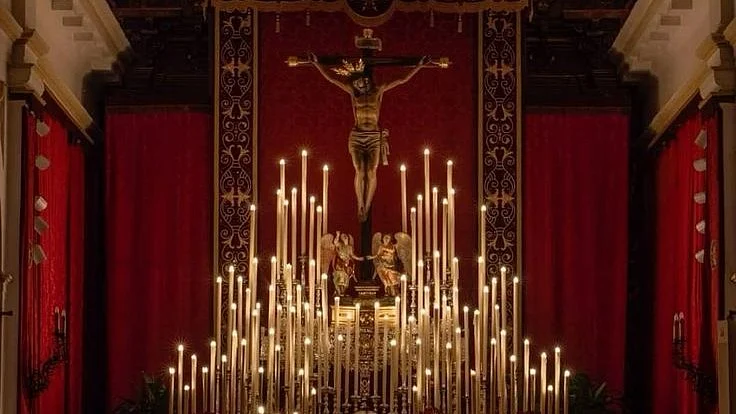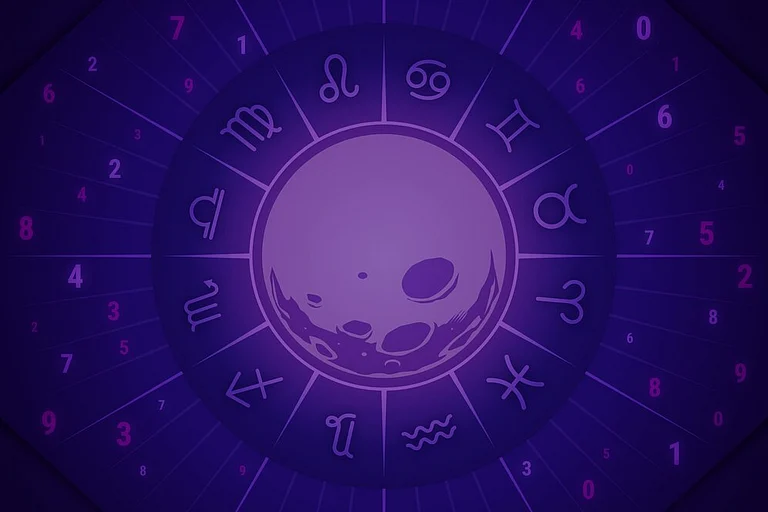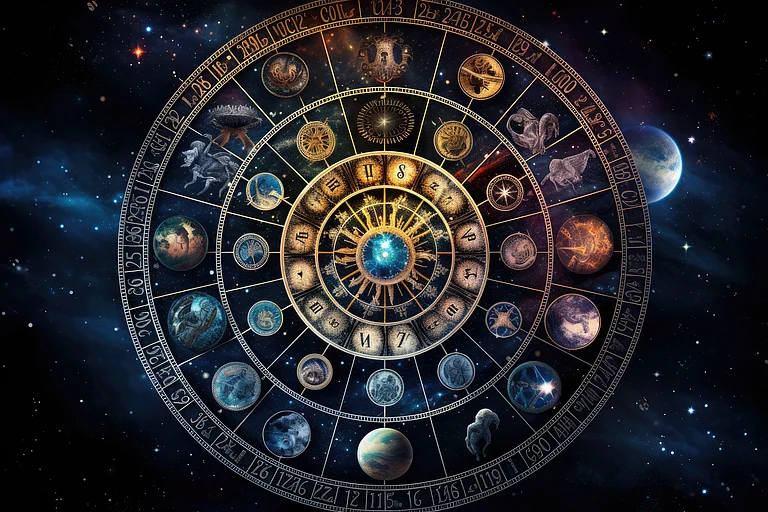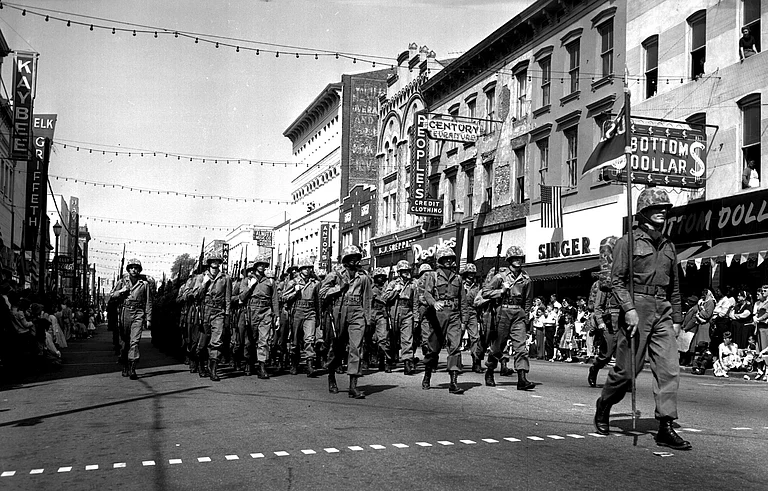Good Friday - a name that hangs in the air, heavy with the weight of history. A day etched in memory with the stark image of a crucifixion, yet adorned with the hopeful moniker of "good." For Christians around the world, it's a somber observance, a day of introspection and reverence. But beneath the surface lies a rich tapestry woven with historical details, potent symbolism, and the promise of redemption.
A walk through the garden
The story of Good Friday doesn't begin on a hill of execution. It unfolds in the quietude of the Garden of Gethsemane, where Jesus, burdened by the weight of his impending sacrifice, wrestles with despair. Betrayal hangs heavy in the air, cast by the shadow of Judas Iscariot. The weight of the world, the impending pain, all press down on Jesus in that sacred space.
From the tranquility of the garden, the scene shifts to the chaotic streets of Jerusalem. The city, usually bustling with commerce and religious fervor, is now gripped by a sense of foreboding. Jesus is arrested under the cloak of darkness, a whirlwind of accusations and fabricated testimonies engulfing him. He endures a series of trials before the Sanhedrin, the Jewish high court. The proceedings are a mockery of justice, filled with biased witnesses and political maneuvering. His words, filled with truth and love, fall on deaf ears. The crowd swayed by religious leaders hungry for power and a populace eager for a scapegoat, calls for his execution.

Condemned by a corrupt system, Jesus is forced to carry the very instrument of his demise - a heavy wooden cross, rough-hewn and stained with the blood of countless others condemned to this fate. The path to Golgotha, the "Place of the Skull," is a brutal one. Weakened by trials and scourging, Jesus stumbles under the weight of the cross. The midday sun beats down mercilessly, adding another layer of torment to his already agonizing journey. The jeering crowds add another layer of cruelty, their taunts a stark reminder of the human capacity for mercilessness. Women weep openly, their empathy a stark contrast to the mob mentality that fuels the persecution.
Witnessing the ‘Crucifixion’
At Golgotha, a desolate hill outside the city walls, the brutality reaches its peak. Jesus is stripped of his garments, his dignity shattered. Nailed to the rough wood of the cross, he is left to suffer. The sky darkens, mirroring the despair gripping the hearts of his disciples who watch from a distance.
His final words - "My God, my God, why have you forsaken me?" - echo across the desolate landscape, a testament to the immense pain he endures.
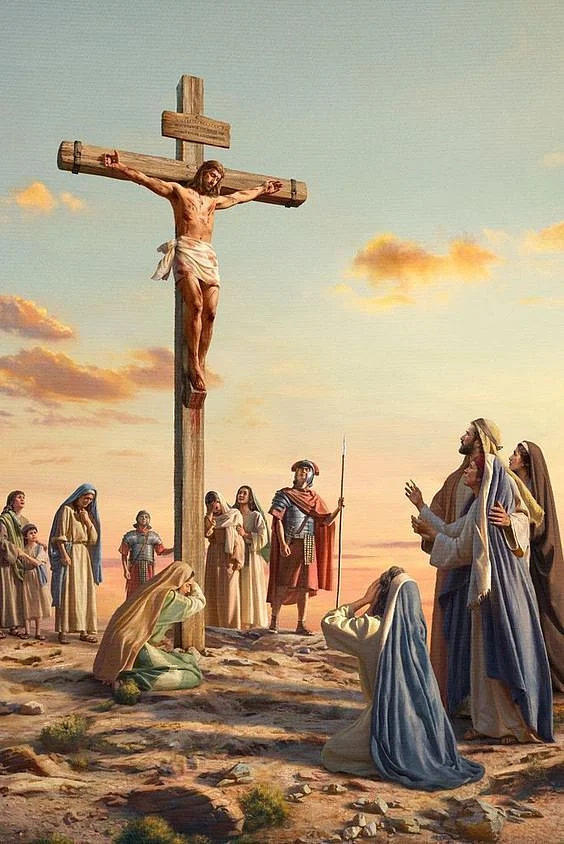
What is "Good" in Good Friday?
The name "Good Friday" often sparks confusion. How can such a tragic day be associated with something positive? The answer lies in the history of the English language. The term "good" in this context likely derives from an older meaning, referring to something "holy" or "sacred." Good Friday, then, becomes a day to honor the profound sacrifice Jesus made for humanity.
For Good Friday, despite its outward appearance, isn't just about pain. It's about sacrifice, about the profound act of love Jesus willingly embraced. His suffering, though excruciating, becomes a bridge, a pathway to a greater good. The crimson blood that spills from his wounds becomes a symbol of redemption, washing away the sins of humanity.
How is Good Friday celebrated?
Good Friday is a time for introspection, a day for Christians to delve deep into the significance of Jesus' sacrifice. Many observe a strict fast, abstaining from all food and drink as a symbol of solidarity with Jesus' suffering. Churches hold special services filled with prayer and solemn hymns, a stark contrast to the joyous celebrations of other Christian holidays.
The focus is on remembering, on allowing the gravity of the events to sink in. The elaborate decorations and celebratory music are replaced with bare altars, draped in mourning purple cloth. The silence, broken only by the soft murmur of prayers, creates a space for contemplation and reflection.
In the quietude, a deeper understanding emerges. The crucifixion wasn't simply a historical event; it was a turning point in the human story. It marked the moment when love took on a tangible form, when hope defied the shackles of despair. This message of redemption resonates in the hearts of believers, offering solace in the face of suffering and a promise of eternal life.
Good Friday traditions across the world
While not a national holiday in the U.S., Good Friday is a significant observance in many countries, with practices reflecting the diverse tapestry of Christian traditions.
In Spain, elaborate processions wind through the streets. Participants, dressed in somber robes and pointed hoods, carry statues depicting scenes from the Passion of Christ. The rhythmic drumming and mournful chants create a powerful atmosphere of both grief and remembrance.
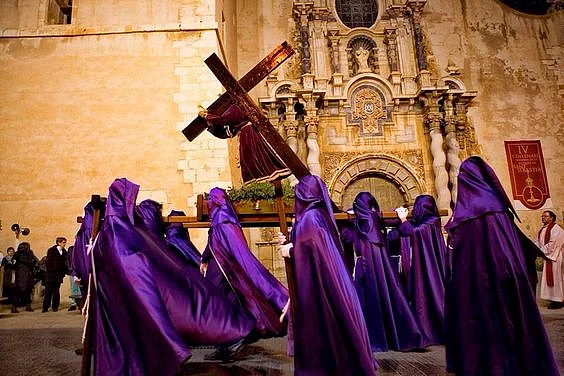
In the Philippines, a particularly dramatic reenactment takes place in the village of Cutud. Devotees, some even undergoing self-flagellation, take on the roles of Roman soldiers and followers of Jesus, culminating in a graphic portrayal of the crucifixion. While controversial, this tradition is seen by some as a form of extreme devotion and a way to truly understand the physical pain Jesus endured.

For many Christians in Latin America, Good Friday is a day for quiet contemplation. Families gather in their homes, sharing simple meals and reciting prayers together. In some regions, traditional foods like fanesca, a hearty stew made with grains and vegetables, are prepared, symbolizing the meager rations Jesus' disciples may have consumed during this time.
Mourning and Hope
Good Friday transcends denominational boundaries. While specific traditions and practices may vary, the core message of sacrifice and hope resonates across the Christian spectrum. Catholics observe the Stations of the Cross, meditating on the fourteen key moments leading to Jesus' crucifixion. Protestants often hold special services focusing on scripture readings and powerful sermons that delve into the meaning of Jesus' death. Eastern Orthodox Christians participate in the veneration of the Holy Cross, a potent symbol of both suffering and salvation.
It is a day of contrasts, a day where darkness and suffering pave the way for the promise of light and redemption. It's a day of mourning the death of Jesus, yet a day filled with the quiet anticipation of his resurrection. The traditions and practices observed around the world, from the solemn processions to the quiet prayers in homes, all serve as powerful reminders of the profound impact of Jesus' sacrifice. Good Friday, though steeped in sorrow, ultimately stands as a testament to the enduring power of love, hope, and the promise of new life.
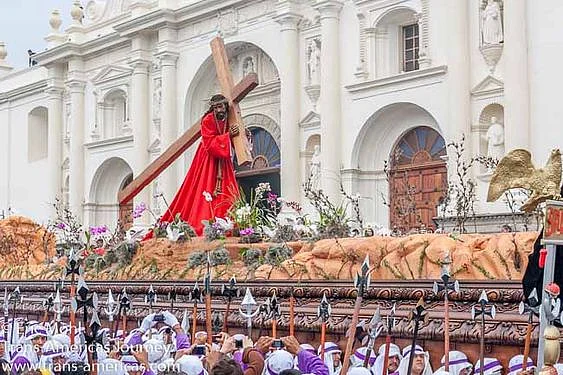
A day of empathy
The message of Good Friday extends beyond the realm of religion. It's a day that invites reflection on human suffering and the importance of compassion. The act of selflessness embodied by Jesus' sacrifice serves as a powerful reminder to prioritize love and forgiveness in our daily lives. Social justice movements often use Good Friday as a platform to raise awareness about contemporary issues like war, poverty, and oppression. By drawing parallels between the suffering of Jesus and the suffering endured by those marginalized in society, these movements call for a more just and equitable world.
The road to Easter Sunday
Good Friday, though a somber day, marks a pivotal point in the Christian calendar. It serves as a bridge between the darkness of suffering and the radiant light of Easter Sunday. The events of Good Friday lay the foundation for the joyous celebration of Jesus' resurrection, his triumph over death. The knowledge that Easter Sunday follows Good Friday offers a sense of hope and reassurance. It signifies the ultimate victory of good over evil, and life over death.

A day for everyone
Good Friday, with its emphasis on sacrifice, empathy, and hope, holds significance for everyone, regardless of religious affiliation. It's a day to reflect on our own lives, the choices we make, and the impact we have on others. The act of self-reflection, often encouraged on Good Friday, can be a powerful catalyst for personal growth and renewal. It's a day to consider how we can emulate Jesus' love and compassion in our own interactions with the world around us.
Though shrouded in the darkness of sacrifice, Good Friday, ultimately shines a light on the enduring power of love, hope, and the promise of a new beginning. It's a day that transcends religious boundaries, inviting all of us to contemplate suffering, practice empathy, and strive for a world filled with compassion and grace.







